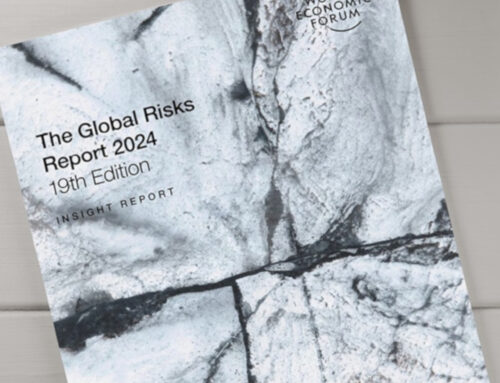

An excise tax on global companies puts American businesses at risk
Share this
As originally published in The Hill.
America is the land of risk takers, but we shouldn’t take risks with tax reform. Unfortunately, policymakers in the House and Senate are discussing a blunt excise tax on all intercompany payments to global affiliates, which will fundamentally disrupt the $655 billion property and casualty insurance market. For American businesses and families, the result will be more risk and less growth.
Global insurers pool uncorrelated risks from around the world, lowering costs for expanded coverage, especially for businesses in areas prone to natural disasters. Global insurers account for only 15 percent of the U.S. total property and casualty market, and this share is 33 percent higher in states such as Florida, Louisiana, Mississippi and Texas. Global insurers will likely pay 50 percent of all claims from Hurricanes Harvey, Maria and Irma, with more than $28 billion already confirmed.
Central to the ability of insurers to serve these tough markets is reinsurance, and in particular, affiliate reinsurance. Affiliate reinsurance enables insurers to diversify risks, lowering costs for policyholders. Today, premiums paid by a U.S. affiliate to a global affiliate for reinsurance are deductible because they are normal business transactions routinely made by both domestic and global insurers. Yet, policymakers are proposing variations of a blunt excise tax on transactions within global companies.
Reinsurance premium payments are far different from other payments, like those for a shared service, such as a data center, or to obtain a license to use intellectual property. These payments permanently shift funds overseas. A reinsurance transaction, however, comes with substantial repayment. The domestic affiliate will recover significant funds in the form of commissions and payouts after disaster strikes.
The excise tax is simply too blunt and should account for the differences in these types of transactions. If enacted, it risks cutting off a lifeline to global insurance capacity that supports so many in coastal states. While tax reform means specifics are changing in real time, previous analyses point to potentially disastrous impacts.
The Brattle Group and University of Alabama professor Lawrence Powell found proposals to eliminate the current deduction for premiums would cost consumers $5 billion. Californians would face nearly half a billion in higher costs, while businesses and families in New York, Texas, Florida, and Louisiana would face $335 million, $271 million, $259 million and $62 million in costs, respectively.
For the U.S. economy, the Tax Foundation found that eliminating the deduction would reduce gross domestic product by $1.4 billion. In fact, for every dollar raised, the private sector would lose four. Tax reform is designed to grow our economy, not hinder it.
Unfortunately, the size and scope of this proposed excise tax will have an even larger impact than these estimates. Beyond the economics, arguments that global affiliate insurance transactions enjoy “loopholes” miss the mark for three simple reasons. First, domestic and global insurers face the exact same rules. There is no special treatment.
Second, these transactions are highly regulated by the IRS and state insurance commissioners to ensure they are priced at arms length. In fact, state insurance commissioners from Florida, Georgia, Louisiana, Mississippi, North Carolina, South Carolina and more support the current tax code’s treatment of these transactions.
Third, affiliate reinsurance is a widely used tool by U.S. and global insurers as it has benefits that simply aren’t replicated in non-affiliate reinsurance. For example, after a capital depleting event, the global affiliate can more quickly replace capacity than a third party. Affiliates also help other members manage credit risk and capital. These benefits explain why half of insurers owned by U.S. companies ceded at least 60 percent of their reinsurance premiums to an affiliate.
The Organization for Economic Cooperation and Development agrees global affiliate reinsurance is not a loophole. Moreover, the same domestic insurers lobbying for a tax on global affiliate transactions lobbied against restrictions on global affiliate reinsurance in Brazil in 2011.
The proposed change in Congress, not used in any other developed country, is an unwelcome form of protectionism for one industry at the expense of American businesses more broadly. Tax reform should give Americans reasons to take risks again, not put more American businesses and homeowners at risk.
An excise tax on global companies puts American businesses at risk
Share this
As originally published in The Hill.
America is the land of risk takers, but we shouldn’t take risks with tax reform. Unfortunately, policymakers in the House and Senate are discussing a blunt excise tax on all intercompany payments to global affiliates, which will fundamentally disrupt the $655 billion property and casualty insurance market. For American businesses and families, the result will be more risk and less growth.
Global insurers pool uncorrelated risks from around the world, lowering costs for expanded coverage, especially for businesses in areas prone to natural disasters. Global insurers account for only 15 percent of the U.S. total property and casualty market, and this share is 33 percent higher in states such as Florida, Louisiana, Mississippi and Texas. Global insurers will likely pay 50 percent of all claims from Hurricanes Harvey, Maria and Irma, with more than $28 billion already confirmed.
Central to the ability of insurers to serve these tough markets is reinsurance, and in particular, affiliate reinsurance. Affiliate reinsurance enables insurers to diversify risks, lowering costs for policyholders. Today, premiums paid by a U.S. affiliate to a global affiliate for reinsurance are deductible because they are normal business transactions routinely made by both domestic and global insurers. Yet, policymakers are proposing variations of a blunt excise tax on transactions within global companies.
Reinsurance premium payments are far different from other payments, like those for a shared service, such as a data center, or to obtain a license to use intellectual property. These payments permanently shift funds overseas. A reinsurance transaction, however, comes with substantial repayment. The domestic affiliate will recover significant funds in the form of commissions and payouts after disaster strikes.
The excise tax is simply too blunt and should account for the differences in these types of transactions. If enacted, it risks cutting off a lifeline to global insurance capacity that supports so many in coastal states. While tax reform means specifics are changing in real time, previous analyses point to potentially disastrous impacts.
The Brattle Group and University of Alabama professor Lawrence Powell found proposals to eliminate the current deduction for premiums would cost consumers $5 billion. Californians would face nearly half a billion in higher costs, while businesses and families in New York, Texas, Florida, and Louisiana would face $335 million, $271 million, $259 million and $62 million in costs, respectively.
For the U.S. economy, the Tax Foundation found that eliminating the deduction would reduce gross domestic product by $1.4 billion. In fact, for every dollar raised, the private sector would lose four. Tax reform is designed to grow our economy, not hinder it.
Unfortunately, the size and scope of this proposed excise tax will have an even larger impact than these estimates. Beyond the economics, arguments that global affiliate insurance transactions enjoy “loopholes” miss the mark for three simple reasons. First, domestic and global insurers face the exact same rules. There is no special treatment.
Second, these transactions are highly regulated by the IRS and state insurance commissioners to ensure they are priced at arms length. In fact, state insurance commissioners from Florida, Georgia, Louisiana, Mississippi, North Carolina, South Carolina and more support the current tax code’s treatment of these transactions.
Third, affiliate reinsurance is a widely used tool by U.S. and global insurers as it has benefits that simply aren’t replicated in non-affiliate reinsurance. For example, after a capital depleting event, the global affiliate can more quickly replace capacity than a third party. Affiliates also help other members manage credit risk and capital. These benefits explain why half of insurers owned by U.S. companies ceded at least 60 percent of their reinsurance premiums to an affiliate.
The Organization for Economic Cooperation and Development agrees global affiliate reinsurance is not a loophole. Moreover, the same domestic insurers lobbying for a tax on global affiliate transactions lobbied against restrictions on global affiliate reinsurance in Brazil in 2011.
The proposed change in Congress, not used in any other developed country, is an unwelcome form of protectionism for one industry at the expense of American businesses more broadly. Tax reform should give Americans reasons to take risks again, not put more American businesses and homeowners at risk.



